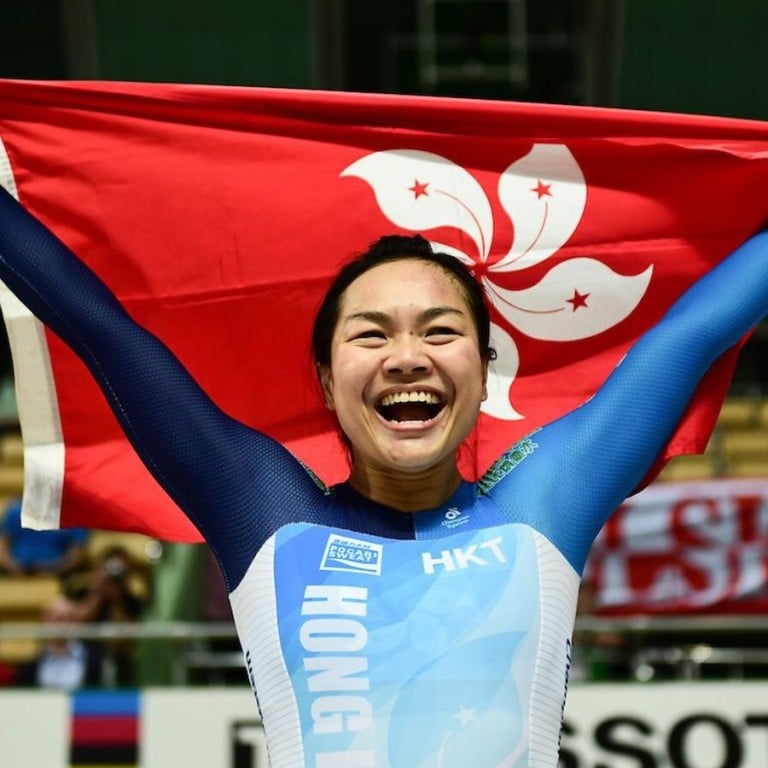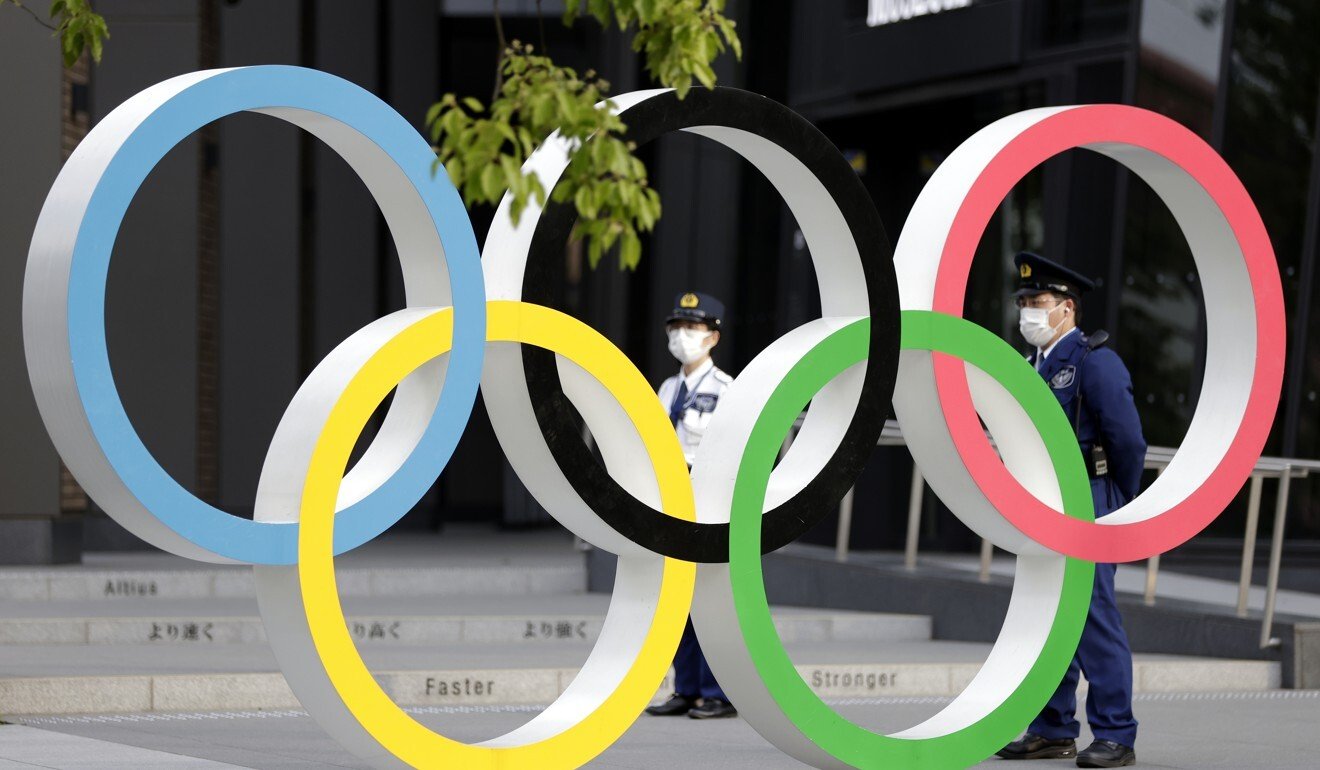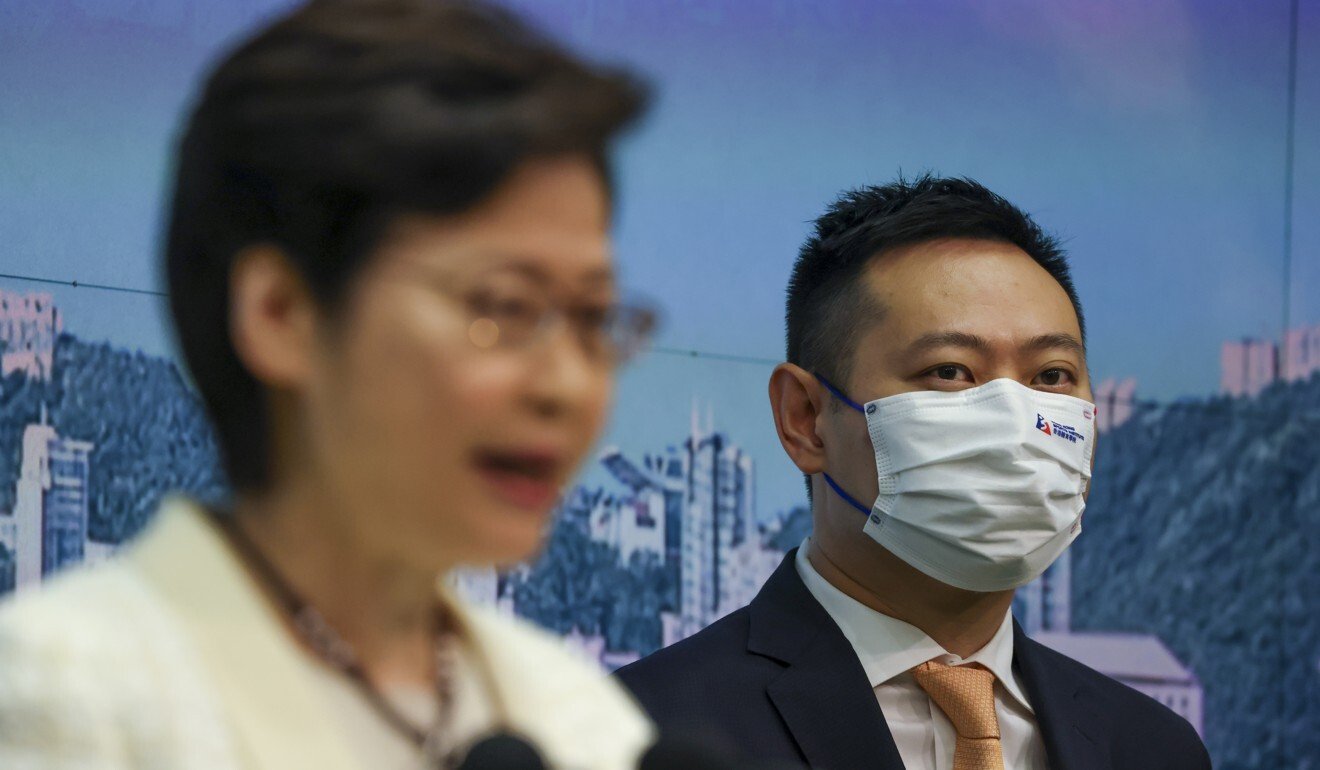
Hong Kong buys 2020 Summer Olympics broadcast rights, will grant five local stations licences to carry Games for free
- Carrie Lam calls move a ‘one-off arrangement’, saying administration needed to step in once it was determined no local broadcaster was likely to score a deal
- The Games will be carried on TVB, ViuTV and Hong Kong Open TV, as well as paid channels Hong Kong Cable Television and NowTV
“It was a tough arrangement, with lots of online meetings and planning, and the deal was completed last Friday. This will only be a one-off arrangement.”
Lam refused to reveal how much the government was spending on the deal, which marks a major policy U-turn as successive administrations in the past have rejected public calls to bid for broadcasting rights for global sporting events such as the Fifa World Cup.

The city’s leader also visited the Hong Kong Sports Institute on Tuesday to learn how members of the fencing and badminton teams are preparing for the Games. She was given an update on a new building at the site, which is expected to be completed in five years’ time.
Until now officials had insisted they would not interfere with commercial decisions that should be left to private broadcasters, which would charge viewers for access to such events.
“The government buying the rights and giving it to so many channels hopefully gives fans the opportunity to watch Hong Kong’s medal hopes on TV,” Hong Kong Olympic Committee president Timothy Fok Tsun-ting said.
But critics from the opposition camp questioned whether the government should be using taxpayers’ money to buy the broadcasting rights only to hand them over, free of charge, to television stations which would profit from advertising revenue.
They were unconvinced by Lam’s explanation that public broadcaster RTHK was left out because it did not have the resources to broadcast the Games live.
Hong Kong hope for at least one Olympic ticket after rowers unable to secure Tokyo places
The selected broadcasters are free-to-air stations Television Broadcasts Limited (TVB), ViuTV and Fantastic TV, which owns Hong Kong Open TV, along with subscription service providers Hong Kong Cable Television (Cable TV) and NowTV.
Lam said the money would come in the form of a grant from the Arts and Sport Development Fund, but cited a confidentiality clause in refusing to reveal the amount.
There would be no negative impact on paying for other sporting events, she added, noting the fund had a balance of HK$2.62 billion (US$337 million).
“In the event the Olympic Games are cancelled, the broadcast fee will be refunded,” she said.
Lam pointed out that the government was spending less than the HK$160 million that TVB paid for the Rio Olympics in 2016, and the HK$120 million that Cable TV spent on the 2012 London Olympics.
Tokyo 2020 Olympic Games staff test Covid-19 positive as nurses stretched
The chief executive said she had started considering the purchase after Hong Kong’s success at the 2018 Asian Games, then instructed the Home Affairs Bureau to look into it in early May 2019.
The deal was cut with Japanese media firm Dentsu, which holds the broadcast rights for much of Asia.
“All of these [local] stations do not have to bear the purchasing fee, and will only have to carry their own production costs,” Lam said.
She said it was pragmatic not to ask the broadcasters to pay the government when it was uncertain how much advertising revenue they stood to earn.
A source with knowledge of the situation said the five stations would be able to air events concurrently, meaning the government would not be dictating which broadcaster would get to run popular events such as diving and table tennis.

Lam said the government had to step in because of the state of the economy, with advertising spending down 20 per cent over the past year.
The Home Affairs Bureau began negotiations once it was determined that none of the city’s commercial broadcasters would be able to reach an agreement with the Japanese rights holder, she said.
Explaining why RTHK was not on the list, Lam said the public broadcaster had neither the money nor manpower necessary to cover the Olympics, which run from July 23 to August 8.
That was not enough to satisfy opposition activist Kelvin Sin Cheuk-nam, the Democratic Party’s deputy spokesman on broadcasting policy.
“It is strange that RTHK, as a public broadcaster, was left out when the commercial broadcasters are benefiting from the advertisement during the event,” he said.
Haughey puts on masterclass to clock Olympic qualifying times
Grace Leung Lai-kuen, a lecturer at Chinese University’s school of journalism and communication, suggested the government might not be doing the broadcasters a favour.
“In the past, the commercial broadcasters have suffered a loss in Olympic-related production,” she said.
But Leung supported the policy U-turn as the right decision. “This is what a progressive government should do … It is actually quite common overseas for public resources to be used to bid for broadcasting rights,” she said.
It was reported in February that no local private broadcaster had secured the rights to air the Olympics as none could afford the HK$270 million fee.
A spokeswoman for the Home Affairs Bureau on Tuesday said subscription television stations would be required to broadcast at least 2,000 hours of events, which must be aired for free on their affiliated online media platforms as well.
The free-to-air broadcasters would have to carry a minimum of 900 hours, while all five stations must undertake to air every event with Hong Kong athletes participating, she added.
A spokesman for RTHK said it would use clips from the five stations to provide coverage to its audience, but as a public broadcaster, it should not spend a lot of money on events already being covered.
Instead, the station would produce special programmes on how Hong Kong’s athletes qualified for the Games.
Additional reporting by Chan Kin-wa, Andrew McNicol and Kathleen Magramo


